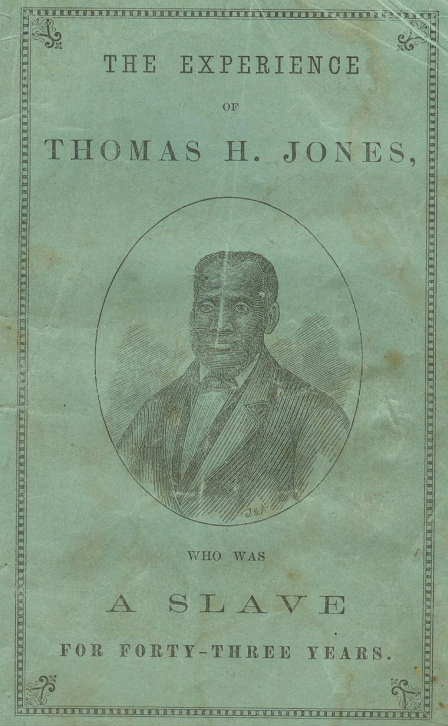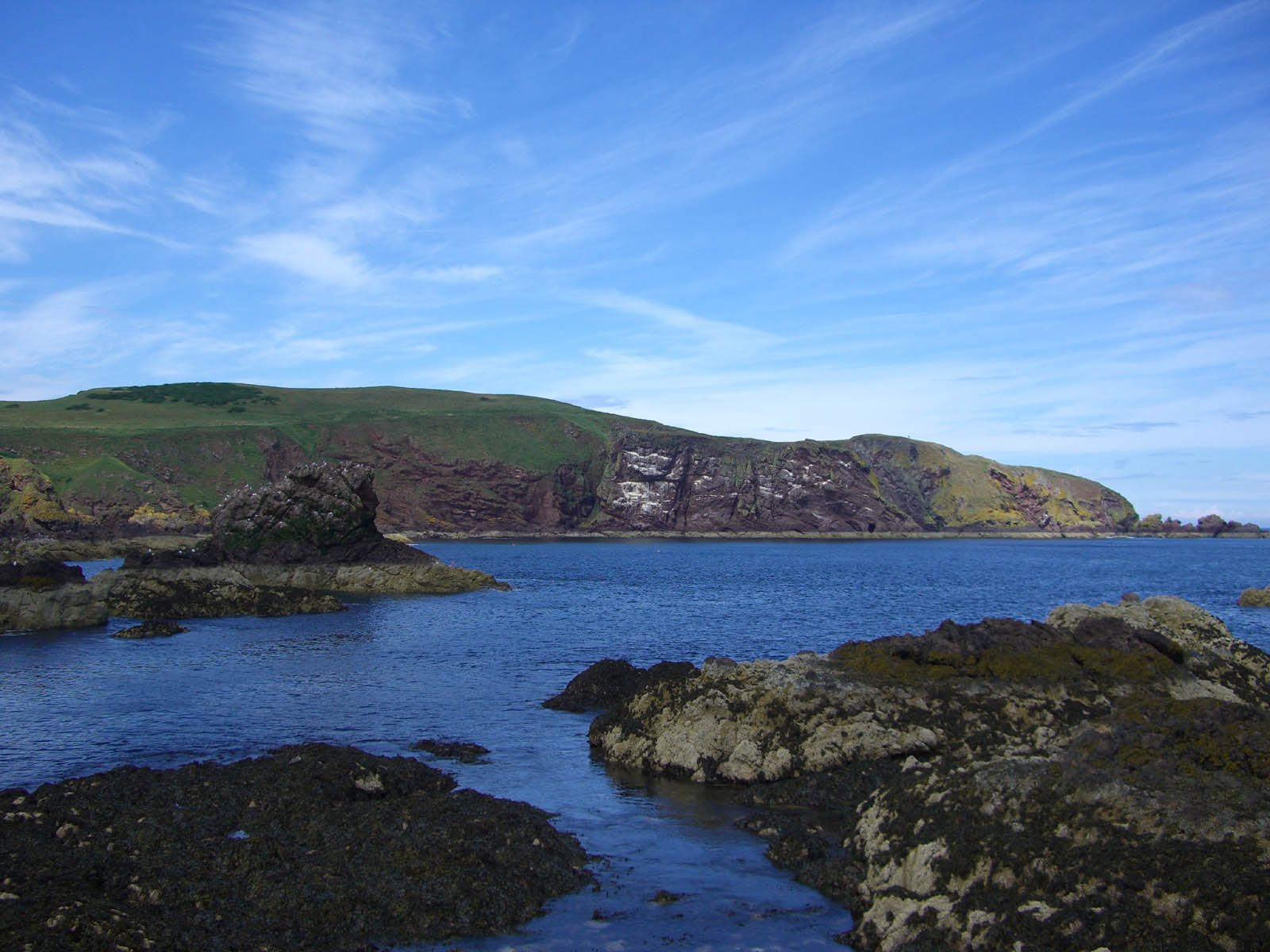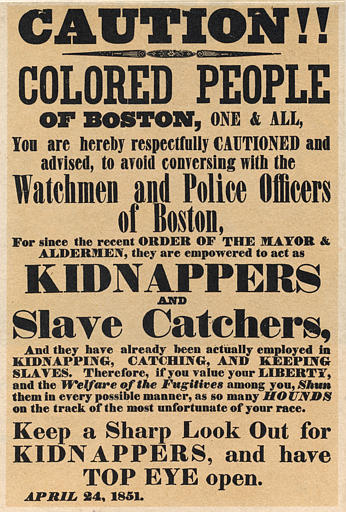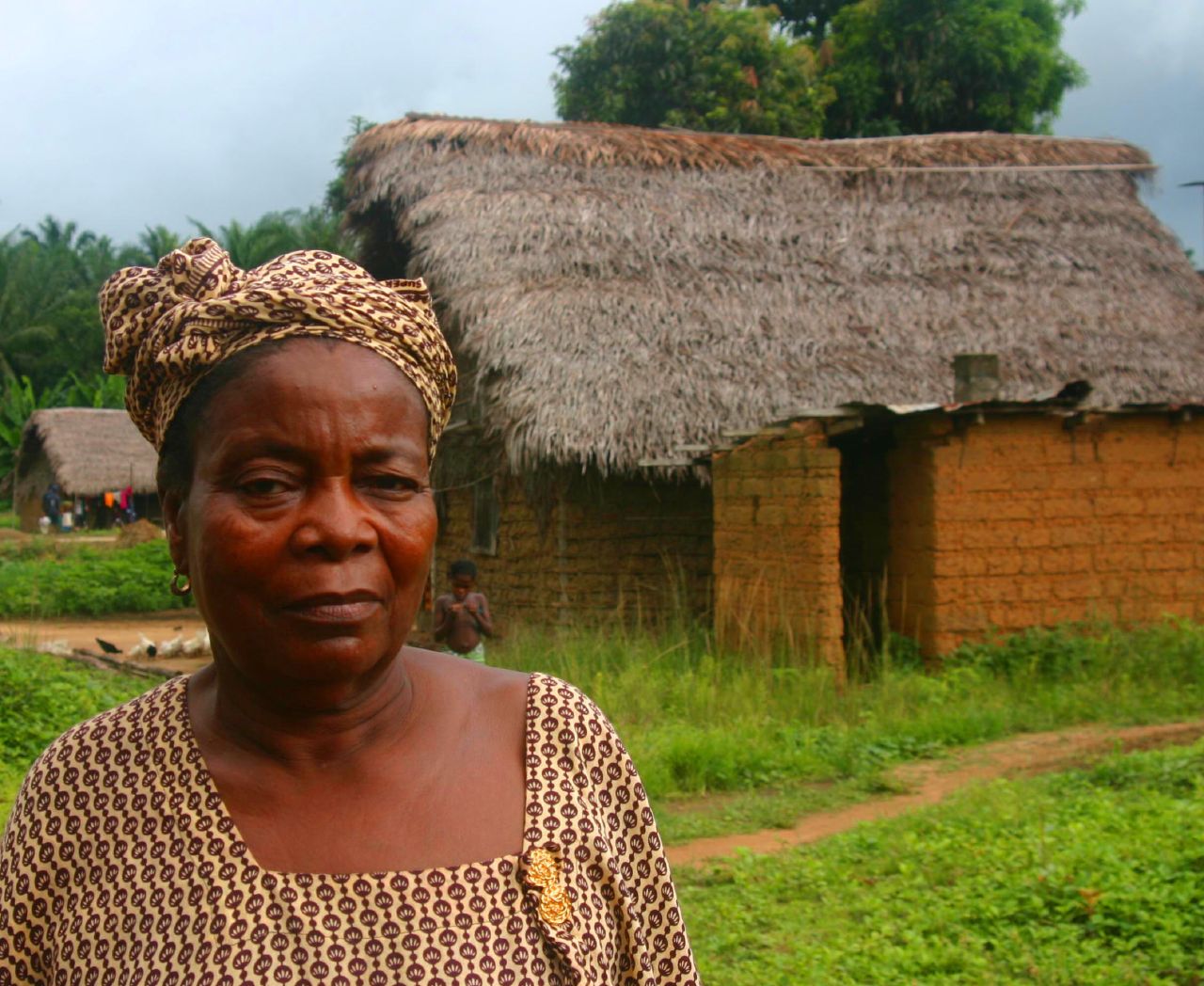|
James W. C. Pennington
James William Charles Pennington ( – October 22, 1870) was an American abolitionist, orator, minister and writer active in Brooklyn, New York. He escaped at the age of 19 from slavery in western Maryland and reached New York. After working in Brooklyn and gaining some education, he was the first African American allowed to attend classes at Yale University, though he was not allowed to formally enroll. He was ordained as a minister in the Congregational Church, later also serving in Presbyterian churches for congregations in Hartford, Connecticut; and New York. After the Civil War, he served congregations in Natchez, Mississippi; Portland, Maine; and Jacksonville, Florida. In the Antebellum period, Pennington was an abolitionist, and among the American delegates to the Second World Conference on Slavery in London. In 1850, he happened to be in Scotland when the Fugitive Slave Act was passed by the US Congress. As it increased the risk for fugitive slaves in the North, Penning ... [...More Info...] [...Related Items...] OR: [Wikipedia] [Google] [Baidu] |
Eastern Shore Of Maryland
The Eastern Shore of Maryland is a part of the U.S. state of Maryland that lies mostly on the east side of the Chesapeake Bay. Nine counties are normally included in the region. The Eastern Shore is part of the larger Delmarva Peninsula that Maryland shares with Delaware and Virginia. As of the 2010 census, its population was 449,226, with just under 8% of Marylanders living in the region – less populous than the city of Baltimore. It is politically more conservative than the rest of the state, generally returning more votes for Republicans than Democrats in statewide and national elections. Developed in the colonial and federal period for agriculture, the Eastern Shore has remained a relatively rural region. The small city of Salisbury is the most populous community. The economy is dominated by three sectors: fishing along the coasts, especially for shellfish such as the blue crab; farming, especially large-scale chicken farms; and tourism, especially centered on the A ... [...More Info...] [...Related Items...] OR: [Wikipedia] [Google] [Baidu] |
Elmhurst, Queens
Elmhurst (formerly Newtown) is a neighborhood in the borough of Queens in New York City. It is bounded by Roosevelt Avenue on the north; the Long Island Expressway on the south; Junction Boulevard on the east; and the New York Connecting Railroad on the west. The village, originally named Middleburgh, was established in 1652 by English Puritans, approximately 7 miles from New Amsterdam. When the British took over New Netherland in 1664, they renamed it New Town, which was eventually simplified to Newtown. It remained a rural community until the late 1890s, when it was renamed Elmhurst and became part of the City of Greater New York. Elmhurst became heavily developed with residential and commercial structures in the early 20th century, and many immigrants started moving in during the latter part of the century. Elmhurst is located in Queens Community District 4 and its ZIP Code is 11373. It is patrolled by the New York City Police Department's 110th Precinct. Politically, Elm ... [...More Info...] [...Related Items...] OR: [Wikipedia] [Google] [Baidu] |
Slave Narrative
The slave narrative is a type of literary genre involving the (written) autobiographical accounts of enslaved Africans, particularly in the Americas. Over six thousand such narratives are estimated to exist; about 150 narratives were published as separate books or pamphlets. In the United States during the Great Depression (1930s), more than 2,300 additional oral histories on life during slavery were collected by writers sponsored and published by the Works Progress Administration, a New Deal program. Most of the 26 audio-recorded interviews are held by the Library of Congress. Some of the earliest memoirs of captivity known in the English-speaking world were written by white Europeans and later Americans, captured and sometimes enslaved in North Africa by local Muslims, usually Barbary pirates. These were part of a broad category of "captivity narratives". Beginning in the 17th century, these included accounts by colonists and later American settlers in North America and the Unite ... [...More Info...] [...Related Items...] OR: [Wikipedia] [Google] [Baidu] |
Berwickshire
Berwickshire ( gd, Siorrachd Bhearaig) is a historic county, registration county and lieutenancy area in south-eastern Scotland, on the English border. Berwickshire County Council existed from 1890 until 1975, when the area became part of the Borders region, with most of the historic county becoming part of the lower-tier Berwickshire district. Berwickshire district was abolished in 1996, when all the districts in the Borders region merged to become the Scottish Borders council area. The county takes its name from Berwick-upon-Tweed, its original county town, which was part of Scotland at the time of the county's formation in the twelfth century, but became part of England in 1482 after several centuries of swapping back and forth between the two kingdoms. After the loss of Berwick, Duns and Greenlaw both served as county town at different periods. The low-lying part of Berwickshire between the Tweed and the Lammermuirs is known as "the Merse", from an old Scots word for a ... [...More Info...] [...Related Items...] OR: [Wikipedia] [Google] [Baidu] |
Fugitive Slave Law Of 1850
The Fugitive Slave Act or Fugitive Slave Law was passed by the United States Congress on September 18, 1850, as part of the Compromise of 1850 between Southern interests in slavery and Northern Free-Soilers. The Act was one of the most controversial elements of the 1850 compromise and heightened Northern fears of a slave power conspiracy. It required that all escaped slaves, upon capture, be returned to the slaver and that officials and citizens of free states had to cooperate. Abolitionists nicknamed it the "Bloodhound Bill", after the dogs that were used to track down people fleeing from slavery. The Act contributed to the growing polarization of the country over the issue of slavery, and was one of the factors that led to the Civil War. Background By 1843, several hundred enslaved people a year escaped to the North successfully, making slavery an unstable institution in the border states. The earlier Fugitive Slave Act of 1793 was a Federal law that was written w ... [...More Info...] [...Related Items...] OR: [Wikipedia] [Google] [Baidu] |
James W
James is a common English language surname and given name: *James (name), the typically masculine first name James * James (surname), various people with the last name James James or James City may also refer to: People * King James (other), various kings named James * Saint James (other) * James (musician) * James, brother of Jesus Places Canada * James Bay, a large body of water * James, Ontario United Kingdom * James College, a college of the University of York United States * James, Georgia, an unincorporated community * James, Iowa, an unincorporated community * James City, North Carolina * James City County, Virginia ** James City (Virginia Company) ** James City Shire * James City, Pennsylvania * St. James City, Florida Arts, entertainment, and media * ''James'' (2005 film), a Bollywood film * ''James'' (2008 film), an Irish short film * ''James'' (2022 film), an Indian Kannada-language film * James the Red Engine, a character in ''Thomas the Tank ... [...More Info...] [...Related Items...] OR: [Wikipedia] [Google] [Baidu] |
United States Supreme Court
The Supreme Court of the United States (SCOTUS) is the highest court in the federal judiciary of the United States. It has ultimate appellate jurisdiction over all U.S. federal court cases, and over state court cases that involve a point of federal law. It also has original jurisdiction over a narrow range of cases, specifically "all Cases affecting Ambassadors, other public Ministers and Consuls, and those in which a State shall be Party." The court holds the power of judicial review, the ability to invalidate a statute for violating a provision of the Constitution. It is also able to strike down presidential directives for violating either the Constitution or statutory law. However, it may act only within the context of a case in an area of law over which it has jurisdiction. The court may decide cases having political overtones, but has ruled that it does not have power to decide non-justiciable political questions. Established by Article Three of the United States C ... [...More Info...] [...Related Items...] OR: [Wikipedia] [Google] [Baidu] |
United States V
United may refer to: Places * United, Pennsylvania, an unincorporated community * United, West Virginia, an unincorporated community Arts and entertainment Films * ''United'' (2003 film), a Norwegian film * ''United'' (2011 film), a BBC Two film Literature * ''United!'' (novel), a 1973 children's novel by Michael Hardcastle Music * United (band), Japanese thrash metal band formed in 1981 Albums * ''United'' (Commodores album), 1986 * ''United'' (Dream Evil album), 2006 * ''United'' (Marvin Gaye and Tammi Terrell album), 1967 * ''United'' (Marian Gold album), 1996 * ''United'' (Phoenix album), 2000 * ''United'' (Woody Shaw album), 1981 Songs * "United" (Judas Priest song), 1980 * "United" (Prince Ital Joe and Marky Mark song), 1994 * "United" (Robbie Williams song), 2000 * "United", a song by Danish duo Nik & Jay featuring Lisa Rowe Television * ''United'' (TV series), a 1990 BBC Two documentary series * ''United!'', a soap opera that aired on BBC One from 1965-19 ... [...More Info...] [...Related Items...] OR: [Wikipedia] [Google] [Baidu] |
Mende People
The Mende are one of the two largest ethnic groups in Sierra Leone; their neighbours, the Temne people, constitute the largest ethnic group at 35.5% of the total population, which is slightly larger than the Mende at 31.2%. The Mende are predominantly found in the Southern Province and the Eastern Province. The Mende are mostly farmers and hunters. Some of the major cities with significant Mende populations include Bo, Kenema, Kailahun, and Moyamba. Like a majority of African nations, Sierra Leone's political parties are often tied to specific ethnic groups and have been dominated by the Mende, on the one hand, and the Temne and their long-time political allies, the Limba people (Sierra Leone), Limba, on the other. The Mende are known to typically support the Sierra Leone People's Party (SLPP), while the Temnes and Limbas are associated with the All People's Congress party (APC). History Regional warfare throughout the 19th century led to the capture and sale of many M ... [...More Info...] [...Related Items...] OR: [Wikipedia] [Google] [Baidu] |
John Hooker (abolitionist)
John Hooker John Hooker (1816-1901) was an American lawyer, judge, and abolitionist as well as a reformer for women's rights. He married Isabella Beecher Hooker in 1841 and lived in Farmington and Hartford, Connecticut. With his brother-in-law, Francis Gillette, he purchased 140 acres in 1853, and they established the Hartford neighborhood known as " Nook Farm." Nook Farm was a community of reformers, politicians, writers and friends; Harriet Beecher Stowe, Mark Twain, Isabella Beecher Hooker, Francis Gillette, and Charles Dudley Warner were the most famous residents. Life and career In John Hooker's memoir ''Some Reminiscences of a Long Life'', he mentioned that he was the son of Edward Hooker, who was the fifth in direct descent from Thomas Hooker, the first minister of the First Church of Hartford and the founder of Connecticut. John Hooker also experienced the Amistad case first hand in Farmington, Connecticut. His memoir alludes to the fact that his law office in Farmingto ... [...More Info...] [...Related Items...] OR: [Wikipedia] [Google] [Baidu] |
Webber
{{disambiguation ...
Webber may refer to: * Webber, Kansas, a US city * Webber Township, Jefferson County, Illinois, USA * Webber Township, Lake County, Michigan, USA * Webber International University, in Babson Park, Florida, USA * Webber (surname), people with the surname ''Webber'' See also * Weber (other) Weber (, or ; German: ) is a surname of German language, German origin, derived from the noun meaning "weaving, weaver". In some cases, following migration to English-speaking countries, it has been anglicised to the English surname 'Webber' or e ... [...More Info...] [...Related Items...] OR: [Wikipedia] [Google] [Baidu] |
Hartford, Connecticut
Hartford is the capital city of the U.S. state of Connecticut. It was the seat of Hartford County until Connecticut disbanded county government in 1960. It is the core city in the Greater Hartford metropolitan area. Census estimates since the 2010 United States census have indicated that Hartford is the fourth-largest city in Connecticut with a 2020 population of 121,054, behind the coastal cities of Bridgeport, New Haven, and Stamford. Hartford was founded in 1635 and is among the oldest cities in the United States. It is home to the country's oldest public art museum (Wadsworth Atheneum), the oldest publicly funded park (Bushnell Park), the oldest continuously published newspaper (the ''Hartford Courant''), and the second-oldest secondary school (Hartford Public High School). It is also home to the Mark Twain House, where the author wrote his most famous works and raised his family, among other historically significant sites. Mark Twain wrote in 1868, "Of all the beautifu ... [...More Info...] [...Related Items...] OR: [Wikipedia] [Google] [Baidu] |


.jpg)





